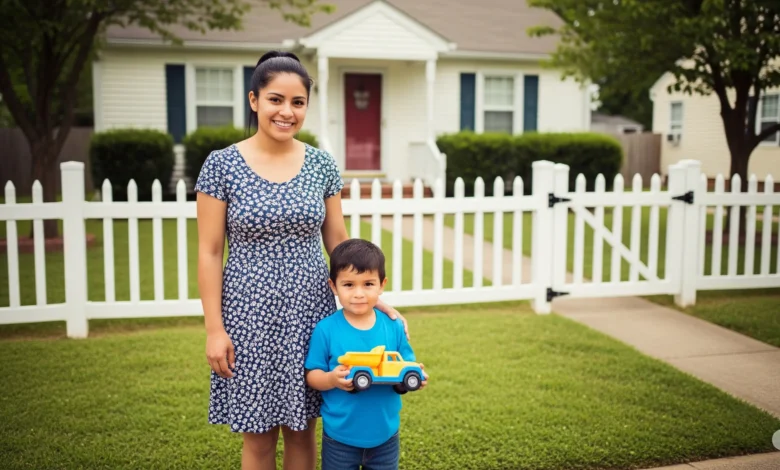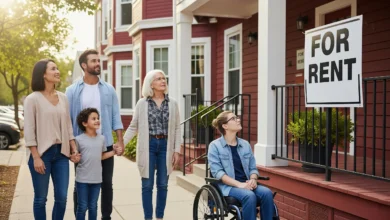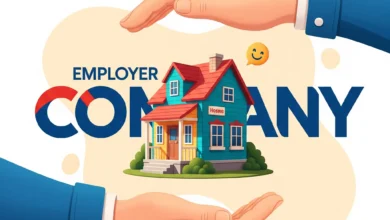Navigating Hope: The Ultimate Guide to Virginia Housing Assistance for Single Mothers

Being a single mother in Virginia comes with unique challenges, especially when it comes to securing affordable, safe housing for you and your children. Between rising rent costs, limited income, and competing priorities, finding stable housing can feel overwhelming. But here’s what you need to know: you are not alone, and substantial help is available.
This comprehensive guide serves as your roadmap to accessing virginia housing assistance for single mothers throughout the Commonwealth. The virginia housing assistance for single mothers landscape includes federal voucher programs, state initiatives, local resources, and emergency aid options specifically designed to help families achieve stability. We’ll cover everything from federal voucher programs and state initiatives to local resources and emergency aid options. Whether you’re facing an immediate housing crisis or planning for long-term stability, this article provides detailed information on housing assistance programs available to single mothers across Virginia. The virginia rent assistance single mothers can access ranges from ongoing rental subsidies to emergency housing virginia single parent families need during crisis situations.
You’ll discover rental assistance programs, public housing options, emergency shelter resources, and specialized grants designed to help single-parent households achieve housing security. Virginia housing assistance for single mothers encompasses both immediate crisis intervention and long-term stability solutions. Let’s navigate this journey together, one step at a time.
Table of Contents
Understanding Virginia Housing Assistance for Single Mothers: Your Essential Needs
As a single mother, your housing needs extend far beyond just having a roof over your head. You’re likely considering multiple factors simultaneously:
Affordability tops the list – finding housing that fits within your budget while leaving room for other essentials like childcare, transportation, and healthcare. Safety is equally crucial, as you want neighborhoods where your children can play freely and walk to school without concern.
School districts play a major role in housing decisions. Quality education opportunities for your children can impact their entire future, making proximity to good schools a priority worth considering in your housing search.
Access to support networks matters tremendously. Being close to family, friends, childcare providers, or your workplace can provide the practical and emotional support that makes single parenting more manageable.
The importance of stable housing for children’s well-being cannot be overstated. Research consistently shows that housing stability directly impacts children’s academic performance, social development, and overall health outcomes. When children aren’t worried about where they’ll sleep next, they can focus on being kids, learning, and thriving.
Remember this: seeking housing assistance isn’t just about meeting your immediate needs – it’s about creating a foundation for your family’s future success. You deserve safe, affordable housing, and Virginia offers numerous programs designed specifically to help families like yours achieve housing stability. The virginia housing assistance for single mothers programs available today represent decades of policy development focused on supporting vulnerable families.
Virginia Rent Assistance Single Mothers Can Access: Statewide Programs
Virginia operates several robust statewide programs that can provide significant housing assistance for single mothers. Understanding these programs is your first step toward accessing help. The comprehensive virginia rent assistance single mothers can utilize includes both state-administered and federally-funded programs.
Virginia Housing Development Authority (VHDA) Programs
Virginia Housing (formerly VHDA) specializes in making affordable housing possible and transforming where and how thousands of Virginians live. Their programs offer some of the most comprehensive housing assistance available in the state.
Housing Choice Voucher Program (HCVP / Section 8) via VHDA
The Housing Choice Voucher Program, commonly known as Section 8, provides rental subsidies that can dramatically reduce your monthly housing costs. This program is often the most impactful form of virginia rent assistance single mothers can access.
What it is: The program provides vouchers that cover a portion of your rent, typically allowing you to pay about 30% of your adjusted gross income toward rent and utilities, with the voucher covering the remainder.
Who is eligible: Eligibility is primarily based on income limits, which vary by area and family size. As a single mother, you may qualify for preferences that move you higher on waiting lists. Income limits are typically set at 50% of the area median income, though some vouchers are available for families earning up to 80% of area median income.
How to apply: Applications are submitted through Virginia Housing’s online portal. Due to high demand, most areas maintain waiting lists, and some may only open applications periodically.
Tips specifically for single mothers:
- Document all income sources including child support, TANF benefits, and part-time employment
- Apply in multiple jurisdictions if you’re flexible about location
- Keep your contact information updated while on waiting lists
- Consider smaller cities or rural areas where waiting times may be shorter
VHDA Low-Income Housing Tax Credit (LIHTC) Properties
LIHTC properties are privately-owned apartments with rent restrictions, often offering more housing options than traditional public housing.
What they are: These are apartment communities where rents are capped based on area median income. Properties typically reserve units for families earning 50% or 60% of area median income.
How to find them: Virginia Housing maintains a property locator tool on their website that allows you to search for available LIHTC properties by location, number of bedrooms, and income requirements.
Eligibility considerations for single mothers: Many LIHTC properties have preferences for families with children, and your income as a single-parent household often falls within qualifying ranges.
Other VHDA Resources (Homeownership, Accessibility)
For single mothers considering long-term stability through homeownership, Virginia Housing offers:
- First-time homebuyer programs with below-market interest rates
- Down payment assistance programs
- Accessibility modification programs for families with special needs
Virginia Department of Housing and Community Development (DHCD) Initiatives
DHCD offers many resources to assist with housing needs, from housing rehabilitation to homebuyer resources, providing additional layers of support beyond VHDA programs. These initiatives are crucial components of emergency housing virginia single parent families can access during times of crisis.
Virginia Rent Relief Program (VRRP)
Virginia continues to administer relief for renters experiencing financial hardship through various rental assistance programs, helping families pay delinquent rent and maintain housing stability.
Status and eligibility: While the main COVID-19 rental relief program has ended, Virginia continues to operate emergency rental assistance programs through various funding sources. Eligibility typically requires demonstrating financial hardship and being at risk of eviction.
How to apply: Applications are typically processed through your local Community Services Board or designated agency. Contact your local government or dial 2-1-1 for current program availability.
Emergency Housing Virginia Single Parent Families Need: DHCD Crisis Support
Virginia coordinates statewide efforts to address homelessness through DHCD’s leadership.
Overview: The state provides funding and coordination for local homeless services, including emergency shelters, transitional housing, and rapid rehousing programs.
How to access emergency help: If you’re facing immediate homelessness:
- Call 2-1-1 for immediate assistance and shelter referrals
- Contact your local Continuum of Care coordinator
- Reach out to your local Department of Social Services
Specific considerations for mothers with children:
- Family shelters prioritize keeping families together
- School stability provisions help children remain in their current schools
- Childcare considerations are factored into service planning
Housing Trust Fund Projects
Virginia’s Housing Trust Fund supports the development and preservation of affordable housing throughout the state. While you can’t apply directly to the Trust Fund, it creates the affordable housing opportunities you can access through other programs.
Local & Regional Housing Assistance: Finding Help in Your Virginia Community
While state programs provide broad coverage, many of the most accessible housing assistance programs operate at the city and county level. Local Public Housing Agencies (PHAs) administer federal programs and often provide additional local assistance.
Finding your local PHA: Use HUD’s PHA search tool to locate your local housing authority. Simply enter your zip code to find nearby agencies.
Spotlight on Major Regions/Cities
Northern Virginia (Arlington, Fairfax, Alexandria)
Arlington County Housing Assistance: Arlington County offers several programs particularly beneficial for single mothers:
- Affordable Dwelling Unit (ADU) Program provides below-market rate rentals
- Housing Grants Program offers financial assistance for housing costs
- Emergency assistance for families facing eviction
Fairfax County Housing Programs: Fairfax County operates one of Virginia’s largest housing programs:
- Housing Choice Voucher Program with over 4,000 vouchers
- Public housing developments throughout the county
- Rapid rehousing programs for families experiencing homelessness
Northern Virginia Regional Commission (NVRC) Resources: NVRC coordinates regional housing initiatives and provides resource directories to help families navigate available programs across multiple jurisdictions.
Richmond Area
Richmond Redevelopment and Housing Authority (RRHA): RRHA serves the City of Richmond with:
- Housing Choice Vouchers for rental assistance
- Public housing communities
- Homeownership programs for qualified families
- Emergency housing assistance
The Richmond area also benefits from numerous nonprofit organizations providing housing assistance and wraparound services for single mothers.
Hampton Roads (Norfolk, Virginia Beach)
Norfolk Redevelopment and Housing Authority (NRHA): NRHA provides comprehensive housing services including:
- Section 8 voucher programs
- Public housing in various neighborhood settings
- Family self-sufficiency programs that help families increase income while maintaining housing assistance
Virginia Beach offers additional programs through their Housing and Neighborhood Preservation division.
Chesterfield County
Chesterfield County Housing Assistance: Chesterfield County provides:
- Housing Choice Voucher administration
- Emergency rental assistance programs
- Housing rehabilitation programs for homeowners
Finding Help in Other Virginia Localities
For other areas throughout Virginia:
- Search online using terms like “[Your County/City] Virginia housing authority” or “housing assistance [Your County/City] VA”.
- Contact your local government directly – most maintain housing assistance information.
- Call 2-1-1 for comprehensive local resource information.
- Visit your local Department of Social Services for program referrals.
Specific Grants and Financial Aid for Single Mothers in Virginia

Understanding the difference between ongoing assistance and one-time grants is crucial for planning your housing strategy.
Understanding “Grants” vs. “Ongoing Assistance”
Direct cash grants specifically for housing are relatively rare. However, many programs function effectively like grants by significantly reducing your housing costs on an ongoing basis. The Housing Choice Voucher program, for example, can save you thousands of dollars annually in rent costs.
Temporary Assistance for Needy Families (TANF) in Virginia
TANF provides cash assistance that can indirectly support housing stability by freeing up other income for rent payments.
How it helps: While TANF funds can’t be used exclusively for rent, the monthly cash assistance provides flexibility in your budget that can help maintain housing payments.
Eligibility and application: Apply through Virginia Department of Social Services. Eligibility is based on income, family size, and other factors. The program also includes work requirements and time limits.
Non-Profit Organizations Offering Support
Many non-profits throughout Virginia offer specialized support that can help single mothers secure or maintain housing:
Local Community Action Agencies often provide:
- Emergency rent assistance
- Utility payment help
- Housing counseling services
Faith-based organizations like the Salvation Army and Catholic Charities may offer:
- Limited emergency financial assistance
- Housing case management
- Referrals to other resources
Specialized organizations focusing on women and children, such as local domestic violence shelters and women’s resource centers, often provide housing assistance or referrals.
Church-Based Assistance Programs
Many churches throughout Virginia offer assistance programs, even for non-members. How to inquire discreetly:
- Call during business hours and ask to speak with someone about community assistance programs.
- Explain your situation briefly and ask what resources might be available.
- Don’t feel obligated to attend services to receive help – most churches separate assistance from membership requirements.
Navigating the Application Process: Tips for Single Mothers
Successfully accessing housing assistance requires preparation and persistence. Here’s how to navigate the process effectively.
Gathering Your Documents
Essential documents you’ll need:
- Government-issued photo ID (driver’s license or state ID)
- Social Security cards for all family members
- Birth certificates for all children
- Proof of income (pay stubs, benefit statements, child support documentation)
- Bank statements from the past 3 months
- Verification of any assets (vehicles, savings accounts, investments)
- Medical documentation is required if claiming disability or medical expenses
Organization tips:
- Create a dedicated folder for housing applications.
- Make multiple copies of each document.
- Keep digital copies stored securely online.
- Update documents regularly as circumstances change.
Understanding Income Limits and Calculations
How income is calculated:
- Employment income is counted as gross income
- Child support (if regularly received) is typically counted
- TANF and other benefits are generally counted as income
- Irregular income may be averaged over several months
Important considerations:
- Some programs allow deductions for childcare expenses
- Medical expenses may be deductible in some programs
- Income limits vary by family size and geographic area
Dealing with Waitlists
The reality: Wait times for housing assistance can range from months to several years, depending on the program and location.
Strategies for success:
- Apply to multiple programs simultaneously – being on several waitlists increases your chances
- Keep your information updated – outdated contact information can result in losing your place
- Check your status regularly – some programs allow online status checks
- Be ready to respond quickly when offered assistance – delays can result in offers going to the next person on the list
Your Rights as an Applicant
Fair Housing Act protections specifically protect you against discrimination based on:
- Family status (having children)
- Race, color, religion, sex, or national origin
- Disability
Right to appeal decisions: If your application is denied, you have the right to request a review of the decision and provide additional information.
Right to reasonable accommodations: If you or your children have disabilities, housing programs must provide reasonable accommodations to ensure equal access.
Beyond Housing: Essential Support Services for Single Mothers in Virginia
Housing stability connects directly to other aspects of family well-being. Addressing these interconnected needs can strengthen your housing situation.
Food Assistance (SNAP, WIC, Food Banks)
SNAP (Food Stamps): Apply through Virginia Department of Social Services. Food assistance frees up income for rent and other housing costs.
WIC: Provides nutrition assistance for pregnant women, mothers, and children under 5. Available through local health departments.
Food banks and pantries: Supplement grocery needs, further stretching your budget for housing expenses. Find locations through Feeding America.
Childcare Assistance
Virginia’s Child Care Assistance Program helps low-income families afford quality childcare while parents work or attend education programs. Apply through Virginia Department of Social Services. Stable childcare enables consistent income, supporting housing stability.
Legal Aid (for eviction, custody, etc.)
Legal Aid Society and other organizations provide free legal assistance for:
- Eviction defense
- Landlord-tenant disputes
- Child custody issues
- Public benefits appeals
Find legal aid through Virginia Legal Aid Society or Legal Services Corporation.
Job Training and Employment Services
Virginia Career Works centers throughout the state offer:
- Job training programs
- Employment placement assistance
- Career counseling
- Support services for working parents
Find your nearest center at Virginia Career Works.
Call to Action: For comprehensive information about all available services, contact Virginia 2-1-1 by dialing 2-1-1 from any phone or visiting 211virginia.org.
Overcoming Common Hurdles: Advice for Virginia Single Moms
Real challenges require practical solutions. Here’s how to address common obstacles in accessing housing assistance.
Dealing with Poor Credit or Eviction History
Strategies for success:
- Be upfront about credit issues when applying – hiding problems often makes them worse
- Get a copy of your credit report and dispute any errors
- Consider credit counseling through nonprofit agencies
- Look for second-chance rental programs – some landlords specialize in helping families rebuild
- Gather positive references from employers, previous landlords, or community members
Credit improvement steps:
- Pay all current bills on time
- Keep credit card balances low
- Don’t close old credit accounts
- Consider a secured credit card to rebuild credit
Finding Safe Neighborhoods and Good Schools
Research resources:
- GreatSchools.org provides ratings and information about local schools
- Local police departments may provide crime statistics by neighborhood
- Visit neighborhoods at different times of day to get a feel for safety and community
- Connect with other parents in potential neighborhoods through social media groups
Building a Support Network
The importance of community cannot be overstated. Single mothers with strong support networks report better outcomes across all areas of life.
Ways to build connections:
- Join local parenting groups or single parent support groups
- Participate in community activities at libraries, community centers, or places of worship
- Connect with neighbors – even small interactions can build helpful relationships
- Utilize online communities for both practical advice and emotional support
Your Next Steps to Secure Housing Assistance
Taking action is the key to accessing help. Here’s your practical roadmap forward:
Actionable Checklist:
Immediate Assessment (Complete Today):
- [ ] Determine your immediate need level: emergency assistance or planned transition
- [ ] Calculate your current income and household size
- [ ] Identify your preferred geographic areas for housing
Within One Week:
- [ ] Gather all required documents listed in this guide
- [ ] Research income limits for programs in your target areas
- [ ] Identify your local Public Housing Agency
- [ ] Create accounts on relevant housing program websites
Within Two Weeks:
- [ ] Submit applications for relevant state-level programs (VHDA programs)
- [ ] Contact local housing authorities about application processes
- [ ] Apply for emergency assistance if needed
- [ ] Research local nonprofit organizations offering housing assistance
Ongoing:
- [ ] Check application statuses monthly
- [ ] Keep all contact information updated across programs
- [ ] Continue building your support network
- [ ] Maintain organized records of all applications and communications
Words of Encouragement
Your journey toward housing stability is a marathon, not a sprint. Every step you take – every application you submit, every phone call you make, every document you gather – moves you closer to achieving safe, affordable housing for your family.
Remember: Thousands of single mothers in Virginia have successfully accessed these programs and achieved housing stability. The path may seem complex, but with persistence and the right information, you can navigate it successfully.
You are advocating not just for yourself, but for your children’s future. Stable housing provides the foundation for everything else in your family’s life – education, health, relationships, and opportunities.
Frequently Asked Questions (FAQs) for Virginia Single Mothers Seeking Housing
How much income can I make and still qualify for housing assistance in Virginia as a single mother?
Income limits vary by program and location, but most housing assistance programs in Virginia serve families earning up to 50-80% of the Area Median Income (AMI). For a family of two in Richmond, this might mean annual income limits around $35,000-$56,000, while in Northern Virginia, limits could be $50,000-$80,000 or higher. Check current income limits for your specific area and family size on Virginia Housing’s website or by contacting your local housing authority.
Is there emergency housing assistance if I’m about to become homeless in Virginia?
Yes, emergency assistance is available. If you’re facing immediate homelessness:
- Call 2-1-1 immediately for crisis assistance and shelter referrals
- Contact your local Department of Social Services for emergency assistance programs
- Reach out to local Community Action Agencies for emergency rent assistance
- Contact your local Continuum of Care for rapid rehousing programs
Many jurisdictions maintain emergency assistance funds specifically for families with children facing eviction.
Are there special housing programs only for single mothers in Virginia?
While there aren’t programs exclusively for single mothers, many programs have preferences that benefit single-parent households:
- Income levels for single-parent families often fall within qualifying ranges
- Family preferences in voucher programs may prioritize households with children
- Some nonprofit organizations specialize in serving women and children
- Domestic violence survivors may qualify for specialized housing programs
What if I have a bad credit score? Can I still get housing help?
Poor credit can be a challenge but isn’t necessarily disqualifying for many housing assistance programs:
- Public housing and voucher programs don’t typically have credit score requirements, though they may review credit history
- Some private landlords who accept vouchers may be more flexible about credit
- Look for second-chance rental programs in your area
- Consider getting a co-signer if possible
- Be prepared to explain credit issues and demonstrate current financial stability.
How long is the waiting list for Section 8 (Housing Choice Voucher) in Virginia?
Wait times vary dramatically across Virginia, from less than a year in some rural areas to 5+ years in high-demand areas like Northern Virginia and Richmond. The key is to get on multiple waiting lists if you’re flexible about location. Some housing authorities may only open their waiting lists periodically, so check websites regularly or sign up for notifications.
Can I get help with my security deposit or first month’s rent?
Several programs may help with move-in costs:
- Emergency assistance programs through local social services
- Nonprofit organizations may provide one-time financial assistance
- Some housing voucher programs include assistance with security deposits
- Local Community Action Agencies often maintain emergency assistance funds
- Faith-based organizations may provide limited financial assistance
Where can I find listings for low-income apartments in Virginia?
Key resources for finding affordable housing:
- Virginia Housing’s LIHTC property locator (found on their website)
- HUD’s resource locator at hud.gov
- Local housing authority websites often maintain available unit lists
- Affordable housing websites like GoSection8.com
- 2-1-1 can provide local housing resource information
What are my rights if I’m facing eviction as a single mother in Virginia?
You have important rights in eviction proceedings:
- Right to proper notice before eviction proceedings begin
- Right to legal representation (contact Legal Aid for free assistance)
- Right to request a payment plan in some circumstances
- Protection against discriminatory eviction based on family status
- Right to safe, habitable housing even while facing eviction
Seek legal help immediately if you receive eviction papers. Virginia Legal Aid Society and other organizations provide free assistance to low-income families facing eviction.
Remember: This guide provides a comprehensive overview of available resources, but programs and eligibility requirements can change. Always verify current information directly with program administrators, and don’t hesitate to ask questions when applying for assistance. Your housing stability matters, and Virginia offers substantial resources to help single mothers achieve safe, affordable housing for their families.
Understanding Virginia housing assistance for single mothers, Virginia rent assistance single mothers can access, and emergency housing Virginia single-parent families need is the first step toward achieving housing security. With persistence and the right information, you can successfully navigate these programs and create a stable foundation for your family’s future.



